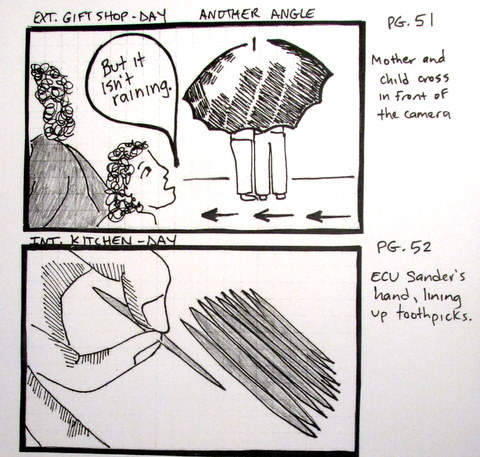Meet a NYFA Artist: Zoje Stage
NYFA speaks with 2008 Playwriting/Screenwriting Fellow Zoje Stage.
NYFA: Hi Zoje, what are you working on at the moment?
ZS: My main push for the last year has been to get my feature script “The Machine Who Loved” into production. I’ve been gradually attracting people to the project, and my co-producer and I hope to shoot it in western New York in spring/summer 2010 on a budget of about $2m. The story is about a woman who is forced into early retirement, who consoles herself by purchasing an artificial life form tailored to her every specification. The science fiction elements are completely secondary: it is really a chance to examine how men and woman communicate (and miscommunicate), and how we define humanity – all through the device of having a character who is not “natural born.”
It has been my goal since I was 18 to make thought-provoking yet entertaining art films that could compete on an international level. I’m now 40, and “The Machine Who Loved” will mark my debut as a professional writer/director, so this is really my burning passion. It’s been a circuitous path, but everything I’ve done has been leading to this. I’m also still creating new feature-length scripts, because, in spite of also being a serious writer in other areas (like poetry) I really love the screenplay format. I’m also getting into spreading my little digital films around, via YouTube, etc. – it’s instant sharing in a way that the major filmmaking process is not.
(Click here to watch Stage’s work on YouTube)
NYFA: What were some of your early artistic influences?
ZS: I am very fortunate in that I grew up in a family that did not relegate children to the stultifying world of children’s entertainment. The first film I remember seeing was “The Day the Earth Stood Still” – I couldn’t have been older than four. As a child in Pittsburgh there was still a grand Cinemascope theatre, where I saw huge sci-fi films like “2001: A Space Odyssey” and “Close Encounters of the Third Kind.” As a teenager I was captivated by Scandinavian films like “The Emigrants” and “Pelle the Conqueror.” So, my cinematic influences are rooted both in fantasy and hard-knock reality.
NYFA: Do you notice any recurring themes in your work?
ZS: I’ve always been attracted to the idea of redemption – of the possibility for a terribly flawed character to reach a better place. I don’t think I could ever write a true tragedy. This isn’t to say I create rosy endings – self-realization is often incremental.
NYFA: What place or location have you gained inspiration from?
ZS: I always like to have my desk in front of a window. I have seen extraordinary things happen in the parking lot.
NYFA: What did your family think of your decision to be an artist? What does your family think of your work?
ZS: I think my parents are somewhat confused about my profession and my work. We live in a world where most people have either time or money – rarely both. I have chosen time as the infinitely more valuable of the two. I am alive when I am creating. Someday, I hope to own a couch. Until then, my sister is endlessly supportive of me and my work… and, unlike other family members, she has never asked why I haven’t written a “summer blockbuster.”
NYFA: What is your favorite thing that anyone has said or written about your work?
ZS: When I was 17 I took a college writing class (one of the only college classes I have ever taken). The instructor, a professional writer, commented on an essay that I had “sensibilities that are entirely your own”. I got an A+ on the paper, and in the class. In reality, my “sensibilities” have butted heads with the greater, money-driven world – but it meant a lot that this teacher saw something in me.
NYFA: How do you feel about the industry in which your work operates? Anything you would you change?
ZS: My work operates in an industry that exists in a world in which women have never been truly valued. The great (and small) contributions of women throughout history have been erased from the collective conscience. What would a building look like, how would a government be run, how would we tell a story if the history of humanity had evolved with true gender equality?
NYFA: How has the Fellowship affected you?
ZS: It gave me validation at a point in my efforts when I really needed it. Long-term rejection is hard core. I have been incredibly focused since winning the Fellowship. I have made concrete decisions about who I am as an artist and what I want to achieve.





